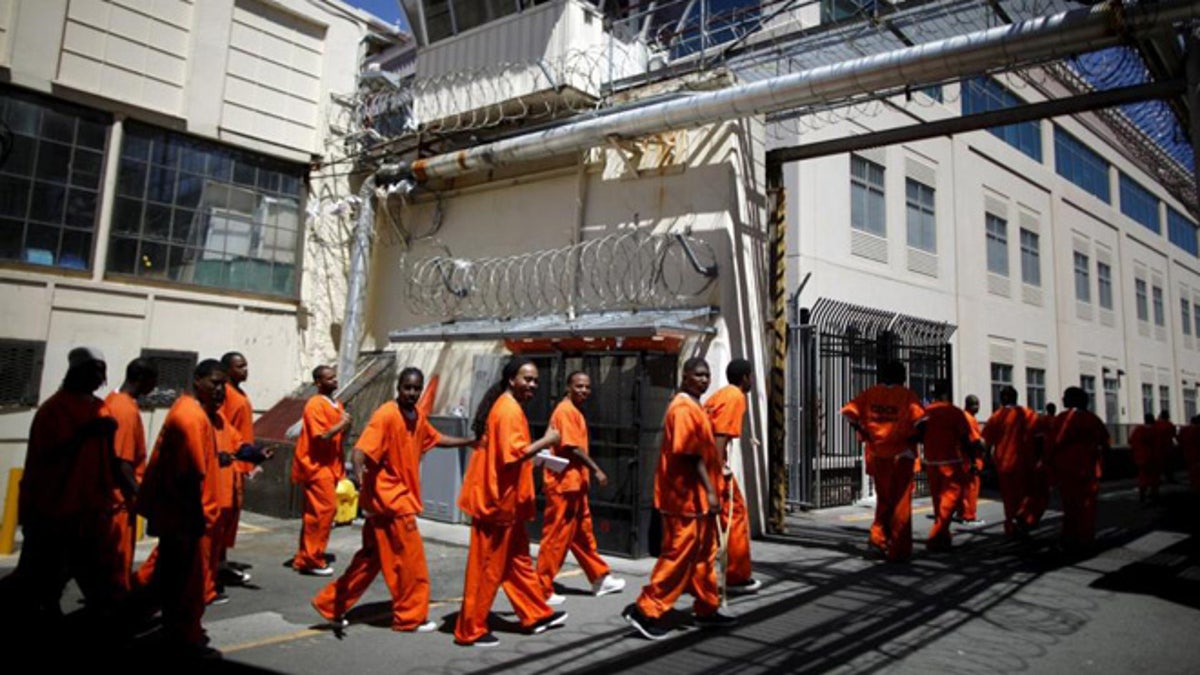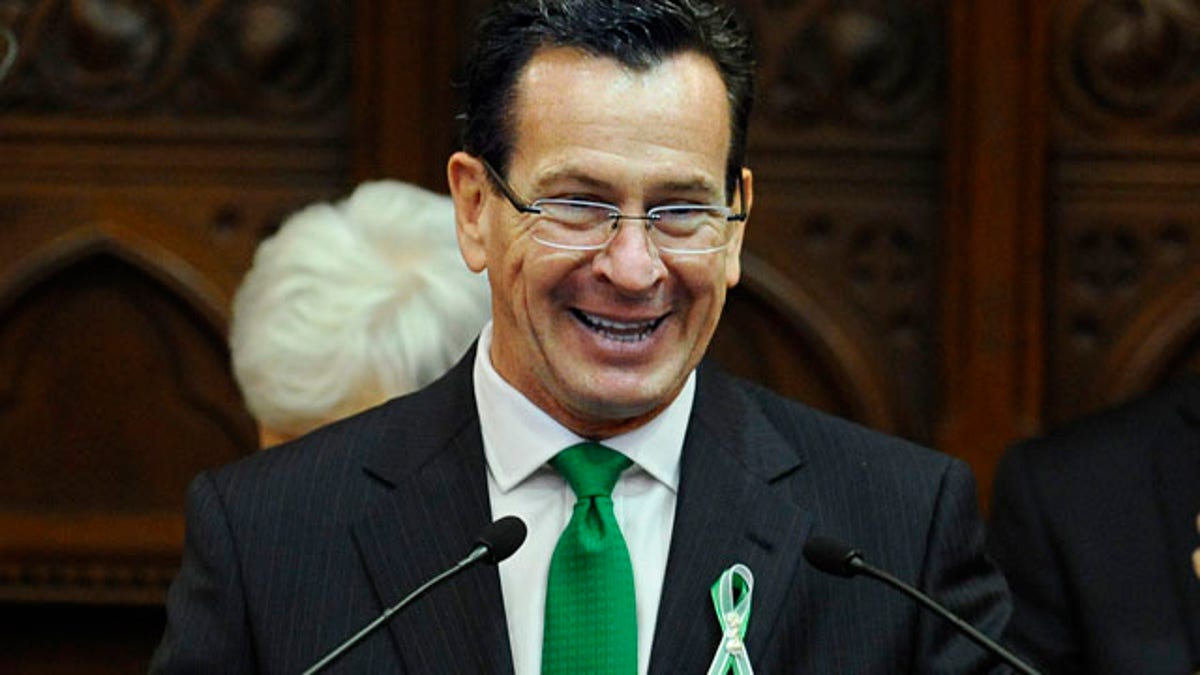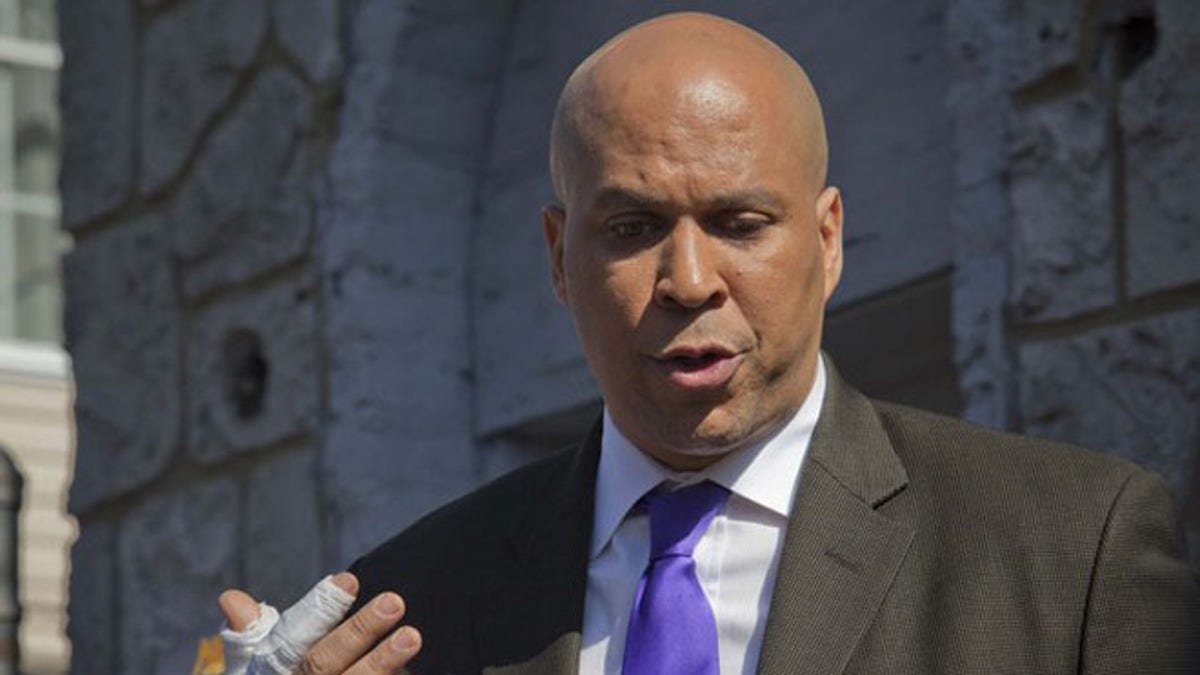
Inmates at the state prison in San Quentin, Calif.
A pair of governors and two high-powered lawmakers agreed at a bipartisan forum Thursday that simply locking away criminals is not working.
Mass incarceration, especially of teenagers tried as adults, too often ensures that ex-cons will remain mired in lives of crime after their eventual release, governors Dannel Malloy, of Connecticut, and John Bel Edwards, of Louisiana, agreed at the first Google Justice Summit, in Washington. It’s also expensive for taxpayers, they said.
“Prison is a very bad place for people who have made a mistake but aren't committed to life a crime,” Malloy said. “What we know is that prison can more likely turn you into someone committed to a life of crime.”

Malloy says locking people up and throwing away the key doesn't work. (Associated Press)
Also taking part in the panel discussion were Sen. Cory Booker, R-N.J., and Sen. Mike Lee, R-Utah.
The two governors highlighted criminal justice changes they have been implementing in their states and the fact that prison reform has become a bipartisan issue.
FBI figures show violent crime has dropped in Connecticut, which Malloy, a Democrat, attributes to focusing on results and rehabilitation, rather than simply punishment. It’s important to understand that “one size doesn't fit all," Malloy said, and that "we should design the system to bring about positive change in people’s lives.”
Louisiana locks up more people per capita than any other state, according to FBI data. Edwards, a Democrat who ran for the governor in 2014 on a platform of criminal justice reform, has made investing in rehabilitation and helping ex-cons re-integrate into society cornerstones of his administration. Edwards said savings reaped from decreasing the number of inmates must be reinvested in improving the prison system.

Booker said he was racially profiled growing up in subrurban New Jersey. (Reuters)
“We need to not pocket the profits make by cuts but rather reinvest it into success programs,” Edwards said, also praising Texas, Georgia and South Carolina for taking on prison reform.
At the federal level, Booker and Lee discussed measures they are pushing in the Senate that would reduce sentences for non-violent offenders, as well as the harsher treatment African-Americans and Hispanics receive in the federal system.
Booker told the audience stories of his days growing up in an upper-middle class neighborhood in New Jersey where he found himself profiled by his local cops.
“This issue is one that is personal to me,” said Booker, who was mayor of Newark before being elected to the Senate.
Lee dismissed the perception among some that prison reform is synonymous with permissiveness.
“I reject the idea that passing criminal justice reform somehow means we are soft on crime,” Lee said.
Like the two governors, Booker and Lee stressed the importance of viewing the criminal justice system as one of rehabilitation and integration rather than simply punishment, particularly when it comes to non-violent crimes.
The forum was sponsored by Google, in partnership with the U.S. Justice Action Network, Coalition for Public Safety, American Civil Liberties Union, Americans for Tax Reform, Center for American Progress, Faith & Freedom Coalition, FreedomWorks, Leadership Conference on Civil and Human Rights, NAACP, and Right on Crime.











































